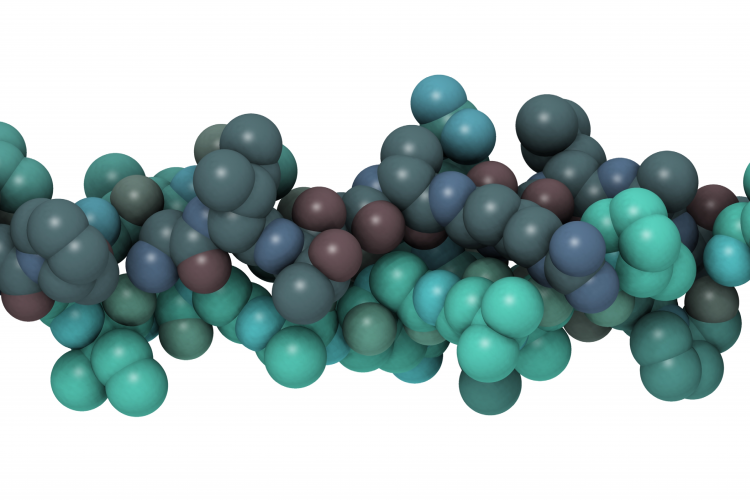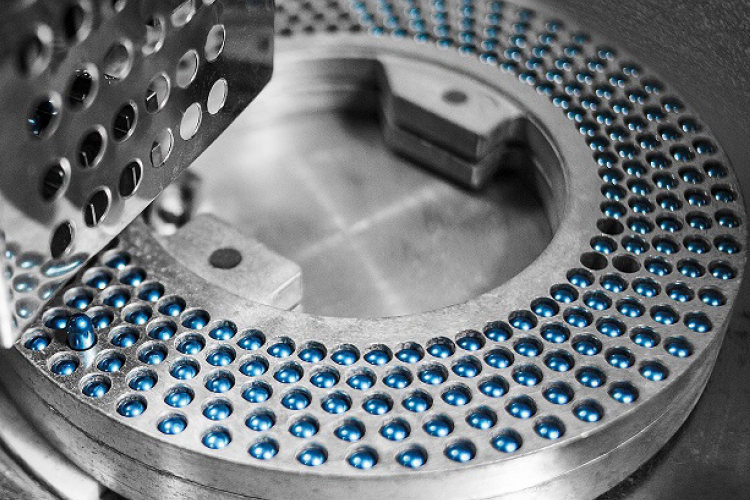
What is gelatin and why is it a “must” in pharma?
Gelatin offers a broad spectrum of qualities that make it a highly effective excipient for pharmaceutical applications. Despite attempts to find suitable alternatives, its unique technological and biopharmaceutical properties ensure it retains huge importance to the pharmaceutical industry and beyond.
What is gelatin?

Gelatin is a natural, water-soluble protein that is transparent and colorless. It is obtained through the controlled and partial hydrolysis of collagen from animal skin, bone, and tissue. The collagen itself is a fibrous protein that is composed of three intertwined polypeptide chains.1 In vivo, collagen is generally white and opaque, with unbranched fibrils embedded in a matrix of mucopolysaccharides and other proteins.
The composition of gelatin is determined by the amino acid sequence of its collagen source; when derived from type I collagen, the gelatin consists of a sequence of amino acids in the form of a triple helix. Due to its size and structure, this form of gelatin has the ability to gel or to remain as a liquid.
What’s so unique about gelatin in pharma?
Used for capsules, tablets, and more, the many benefits of gelatin include its ability to protect active pharmaceutical ingredients (APIs)2 excellent bioavailability3, and the potential for modified release4.
Gelatin meets both consumer and production needs, which makes it an ideal ingredient for the pharma industry.
How does gelatin meet consumer needs?

Gelatin is a safe and virtually non-allergenic ingredient that is universally tolerated by the human body. Therefore, it can be used in different medical applications, e.g. blood plasma expanders, surgery (hemostatic sponges), and regenerative medicine (tissue engineering).
Moreover, it has excellent solubility, dissolving rapidly in the stomach and this allows a fast release of the active content of the oral drug form while masking its odor and taste.
How does gelatin meet pharma production needs?
When used in capsules, gelatin provides an effective means of protecting the filling from light, atmospheric oxygen, contamination and microbial growth. Gelatin also meets the viscosity requirements for capsule production. It is available in a wide range of viscosities, which means a tailor-made solution that is based on the process requirements can be offered to the capsule producers.

Moreover, its thermoreversability (the ability to move from liquid and solid state and back to liquid without losing its gel strength), plays an important role in the production process of gelatin capsules. Thanks to this unique property:
-
Soft gelatin capsules can be effectively sealed after being filled with an active ingredient
-
In case of any deviations during hard capsule production, the thermoreversability of gelatin allows in-process adjustments
An additional benefit of gelatin in these applications is its ability to work on a broad range of pHs without the use of salts, ions, or additives.
Furthermore, its film formation capacity plays a role in capsule formation and coating of tablets. In tableting, gelatin can also be used to improve the binding power between different ingredients.
Gelatin also has an excellent absorption capacity, making it perfectly suitable for medical applications such as ostomy patches, hemostatic sponges, wound healing products, etc.
In addition to these benefits, the versatility of gelatin also means it is well-placed to help pharmaceutical manufacturers cater to the personalization trend as well as meeting the requirements of aging populations, including different preferences for delivery formats and the need for swallowability.
[1] Shen, C.H. 'Diagnostic Molecular Biology' (2019)
[2] Schrieber, R. & Gareis, H. 'Gelatine Handbook: Theory and Industrial Practice' (2007)
[3] Wang, L. et al. ‘Determination of bioavailability and identification of collagen peptide in blood after oral ingestion of gelatin’ Journal of the Science of Food and Agriculture (2015)
[4] Vasvári, G. et al. 'Development and Characterisation of Modified Release Hard Gelatin Capsules, Based on In Situ Lipid Matrix Formation' AAPS PharmSciTech (2018)